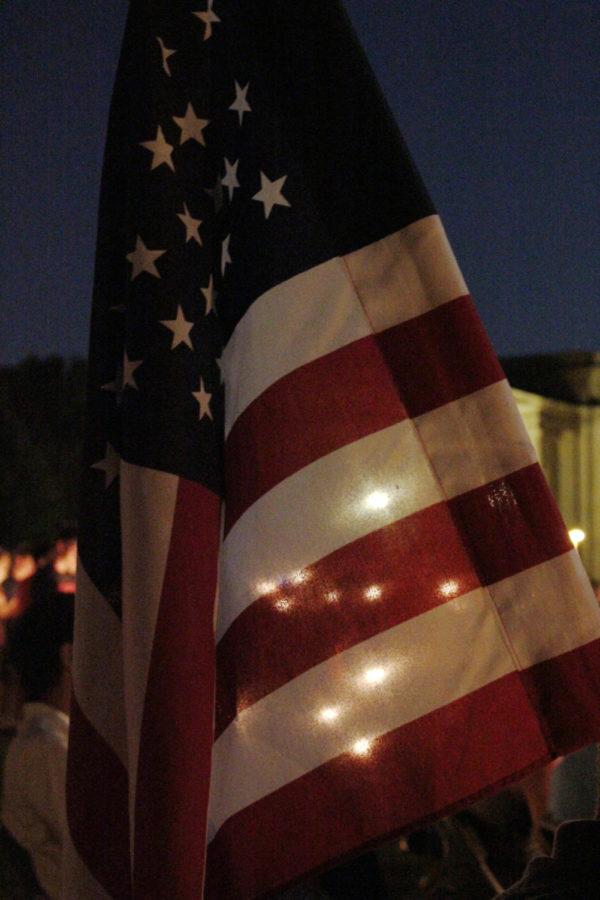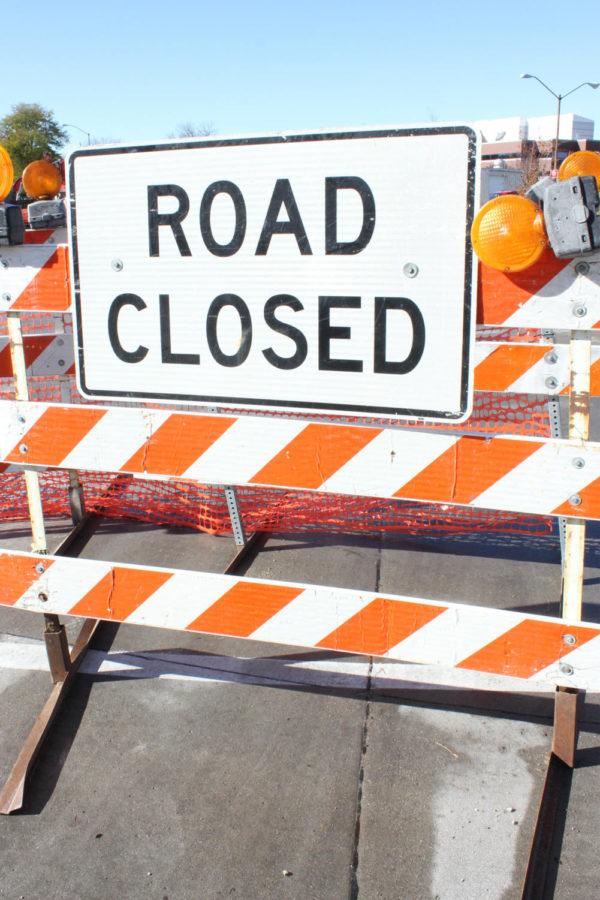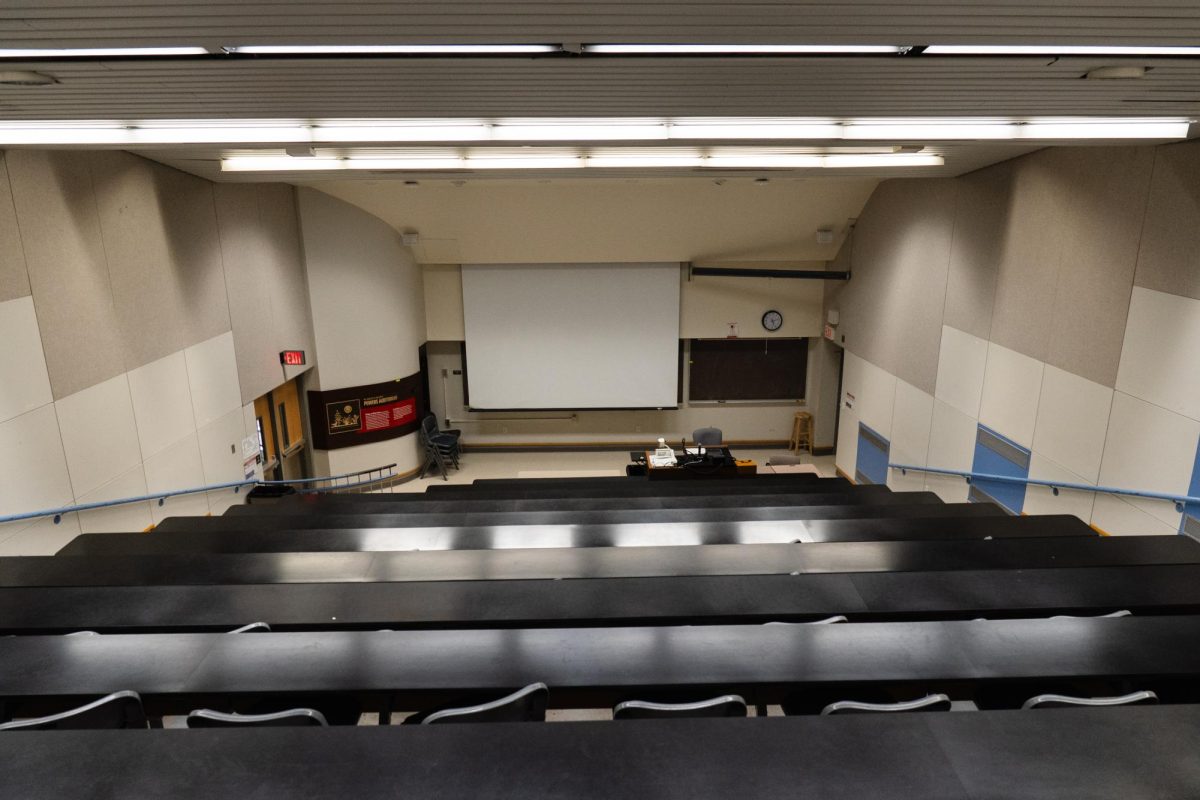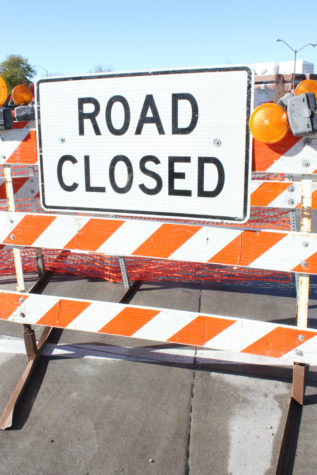9/11 still impacts after 14 years
September 11, 2015
The ash settled years ago, but America still feels the impact of Sept. 11, 2001, 14 years after the destruction caused by four hijacked planes. As time goes on, those who remember 9/11 get older, creating the last generation of memories.
During that Tuesday morning, aircrafts crashed into the World Trade Center, the Pentagon and the last failed to reach the Capitol Building or the White House. Including the plane passengers and victims inside the buildings, 2,996 people were killed.
“It was probably the defining moment of the last decade,” said Neil Vezeau, junior in animal science and director of graduate student relations outreach for Student Government.
Vezeau was sat down by his teacher with the rest of his 2nd grade class and told that there was an attack.
“I certainly didn’t understand the consequence or the magnitude of that at the time,” Vezeau said.
When returning home from school, he said that the attacks dominated most media, showing footage, photos and interviews to citizens in a desperate attempt for the nation to understand the event.
“This was something unusual,” Vezeau said. “We did know something important, something big had happened.”
As time passed, Vezeau became fascinated with the politics surrounding events throughout history, including the acts of terrorism that happened in 2001. He understands the effects that the attacks had on the nation.
“Emotionally, [Sept. 11] was very unifying,” Vezeau said.
Vezeau had a friend in his class who lost a family member in the attacks on the towers. During the one-year anniversary, his friend made a presentation to their class and began to cry.
“That was eye-opening,” Vezeau said. “We didn’t have that real-world connection at the time. It was something that was on TV. It just wasn’t real.”
Kyle Janssen, junior in management and president of Student Veterans of America, remembers leaving his middle school geography class and heading into study hall when the first tower was struck.
“It didn’t trigger a response right away because I wasn’t fully aware what was going to happen,” Janssen said.
However, he became more informed when he joined the military. After participating in four years of active military service, he said he now recognizes the significance of the event.
“A lot of people sacrifice from the Midwest as far as having family members that are in the military,” Janssen said.
He admits that younger generations may see the event as another piece of history while those with memories from the day understand it’s impact. Janssen says it is affecting younger generations enough to encourage them to fight for their country.
“They are definitely understanding it enough that they are going at war or continuously in war in the Middle East, and the reason for that all [stems] from 9/11,” Janssen said.
While he agrees that it did unify the nation the following decade, Janssen says there has been tension among citizens regarding race and beliefs.
“9/11 brought everyone together, and now it seems like people want to separate everyone again,” Janssen said.
The United States had been aware of terrorist attacks leading up to the events of 9/11, and even experienced an unsuccessful bombing attempt on the World Trade Center.
“We were to some extent quite certain that the United States was still a country that had never been invaded before,” said Steffen Schmidt, professor of political science.
As Schmidt got on the elevator 14 years ago to go teach a class, a colleague turned to him and asked if he had heard of the accident in New York City. After class, he saw people huddling and discussing that the disruption was not an accident.
“As the hours passed, students became extremely aware of it,” Schmidt said. “I think the students and [professors] were on the same level.”
He explained that since information was being distributed during the course of the day, discussions sparked about the event between the political science professors and students.
“We didn’t know any more than the students,” Schmidt said. “But we were all concerned about how big this was and what it meant.”
Schmidt believed there was no purpose in picking up where the syllabus left off, instead dedicating the curriculum to the issues at hand for the week.
“The students contributed probably more than the instructors to the discussion,” Schmidt said. “In this case because it was such distributed information available in so many different places, students were bringing in [content] they were gathering.”
The federal government, fearing more hijackers, took immediate action by issuing an immediate order to land all planes.
“That whole [few days] after that, no one was sure what this was and how big it was,” Schmidt said.
There was a sense of violation within America after the crashes that citizens had never experienced.
“It destroyed the atmosphere that existed before, which was that the United States was the most powerful country in the world,” Schmidt said.
What happened following 9/11 affects the country still today, as seen by the necessity to gather a plethora of information about individuals and increased security in airports and buildings.
“[America] became a much more security-conscious country, and today, we still have that debate of the role of the federal government in protecting us from the next September 11 attack,” Schmidt said.
Those with memories from the day of 9/11 will always carry them.
“Every generation has an experience that it brings with it until people die of old age,” Schmidt said. “The people who [lived through] September 11 will never forget it. That will never go away.”

















